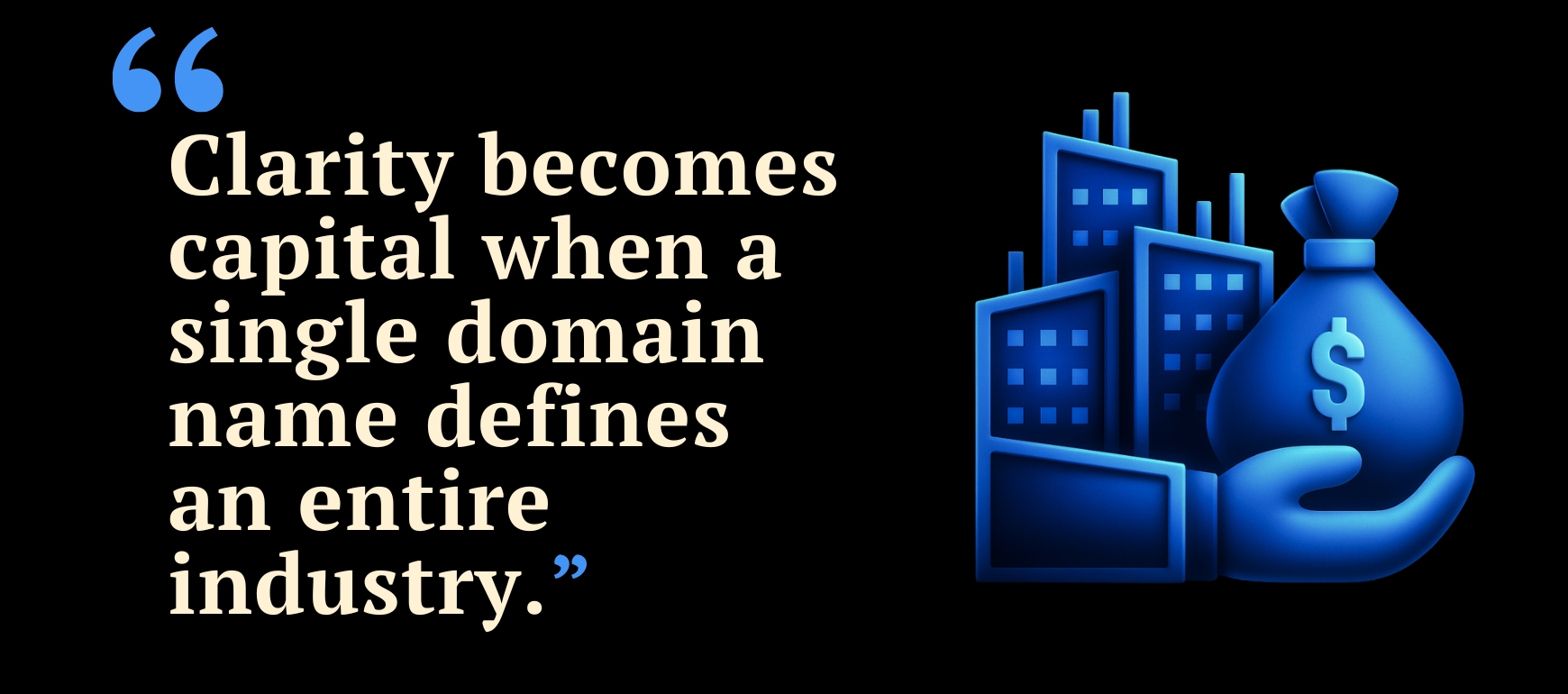In mid-1999, telecom executive Hensley E. “Buddy” West and Jeffrey Jones founded a company built to bring order to one of the world’s most fragmented markets. Their aim combined clarity of vision with operational difficulty: to structure how telecommunications services and equipment were bought, sold, and compared. The name required no invention. Telephone.com already existed, owned by West, and it carried the weight of an entire industry.
The domain name defined the category, giving the brand immediate authority, recognition, and a sense of scale that few emerging companies could claim at the time.
A Transaction Built on Enduring Value
In 2002, ownership of Telephone.com moved from West to a private company through a transaction valued at around $2 M in cash and equity. For that period, while markets were still recovering from the dot-com collapse, the figure stood out.
Many digital assets were being written off or traded for fractions of their earlier value, yet Telephone.com drew a decisive commitment. The buyer saw permanence where others saw uncertainty, paying a strategic price when confidence in the digital economy remained fragile. That move demonstrated conviction that the internet’s next phase would continue to rely on the authority of Strategic-Grade domain names.
Why the Telephone.com Domain Name Represented a Strategic-Grade Asset
Telephone.com carried the rare properties of a structural advantage. The word was universal, immediately intelligible across languages, and inseparable from the business it described.
During the late 1990s, telecom exchanges, often referred to as vortals, were seen as the next layer of B2B infrastructure. To thrive, a platform needed both scale and recognition. Telephone.com offered both through a single, concise identity. The domain name could extend naturally into any part of the telecom ecosystem, from equipment trading and service marketplaces to bandwidth and software solutions, while retaining perfect clarity.
The name conveyed trust before a single transaction occurred. It projected stability in an environment still marked by volatility and consolidation. Ownership of Telephone.com suggested that the business behind it was not emerging from the margins but already seated at the center of the industry’s map.
Capital That Followed
By 2005, the company operating under the Telephone.com domain name secured a 1.5-million-dollar investment from Grove Strategic Ventures. The capital expanded operations, but the name itself carried comparable influence. Investors recognized a product platform backed by a brand with the strength to define its category.
Amid a landscape of acronym-heavy startups and transient ventures, Telephone.com appeared established from the first introduction. The domain name alone framed expectations of scale and professionalism long before the company’s balance sheet could.
What the Case Reveals
The Telephone.com case demonstrates how strategic assets evolve when belief aligns with clarity. The transfer of this defining name marked a recognition that credibility carries measurable economic value.
For founders, the case shows that a well-chosen domain accelerates trust and draws investor attention long before scale is proven.
For domain owners, it emphasizes that holding a name with intrinsic authority creates leverage, transforming ownership into an active position within emerging markets.
The Broader Signal
The Telephone.com case mirrors the broader economics of digital ownership. Category-defining names compress trust, reduce acquisition friction, and maintain relevance long after their initial sale. The 2002 deal represented a quiet vote of confidence in the internet’s resilience and in the compounding value of clarity.
Future platforms across industries will encounter the same decision: to build credibility or to describe it from the sidelines. Those that secure ownership of their category will be the ones shaping the narrative of the next growth cycle.
Discover verified Strategic-Grade domain names and founders prepared for creative partnerships at DomainsForEquity.com.

